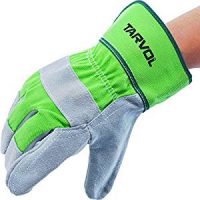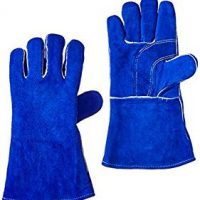General – student must read supplied literature, understand the risk of pottery & working with open fire and gas. Sign a waiver / agreement that they accept responsibility for their own safety during the course.
Students accept the moral responsibility of not using lead glazes.
Course materials & supplies
0) A digital reading device that can access web-pages, web-search and PDF documents. ( Laptop, netbook or phone ). Desire to perform web-based reference look-up as part of homework assignment and independent study.
1) Equipment & protective gear
Mandatory
- 100% cotton, wool,linen or hemp clothing, alternatively welding clothing. Fireproof / firesafe.
No synthetics. No flammable clothing , clothing that melts. if you do not have a fabric tag, take a lighter and see if the fabric melts on the edge. If yes, do not use. Jeans, cotton long sleeve shirt or hoodie is fine. Covered shoes, leather or cotton.
Optional
- Welding gloves, long ( leather or kevlar or aluminum )
- Welding goggles
or safety glass, Shade 3 / Shade 3.0 to shade 5 ( for example, welding goggles for cutting torch, oxy-acetylene)
2) Reading
Mandatory – materials shared in online drive, as listed in course email.
Strongly recommended –
Steven Branfman – Raku ( any of his 2 books )
James Watkins – Alternative Kilns & Firing techniques
Strongly Recommended – Matt Katz – Ceramic Materials Workshop – Introduction to ceramic glazes / U.M.F ( excellent online course that explains glaze theory and so much more. Mandatory if You would like to ask material science related questions such as “what is the best way to lower my glaze melting temperature”. )
Safety – understand the risks associated with pottery and natural gas / open fire .
After doing your homework before the course, you should be able to motivate the following, in Your own words:
Why do we not use lead in our pottery materials? Describe lead poisoning symptoms.
Biggest risk from pottery related activities and how to easily avoid it?
As far as breathing and fire hazards, what is the primary difference between natural gas and bottled / liquid ( “propane” or “butane” or other trade-names) gas?
Describe the gear to use and actions to take to avoid personal injury due to airborne particles and heat proximity.


 © 2025
© 2025